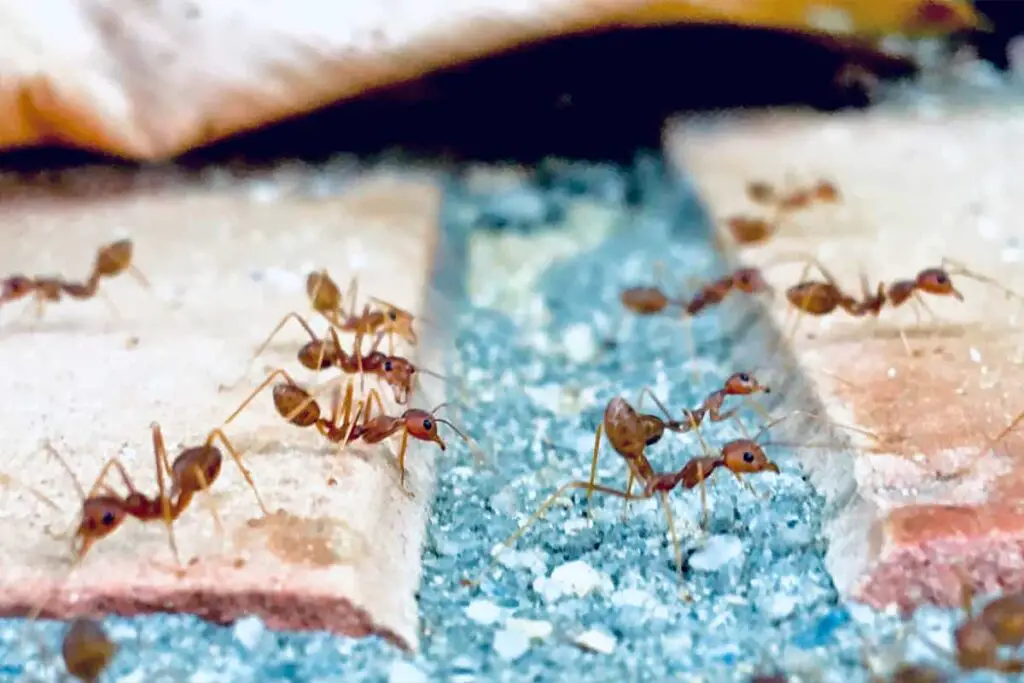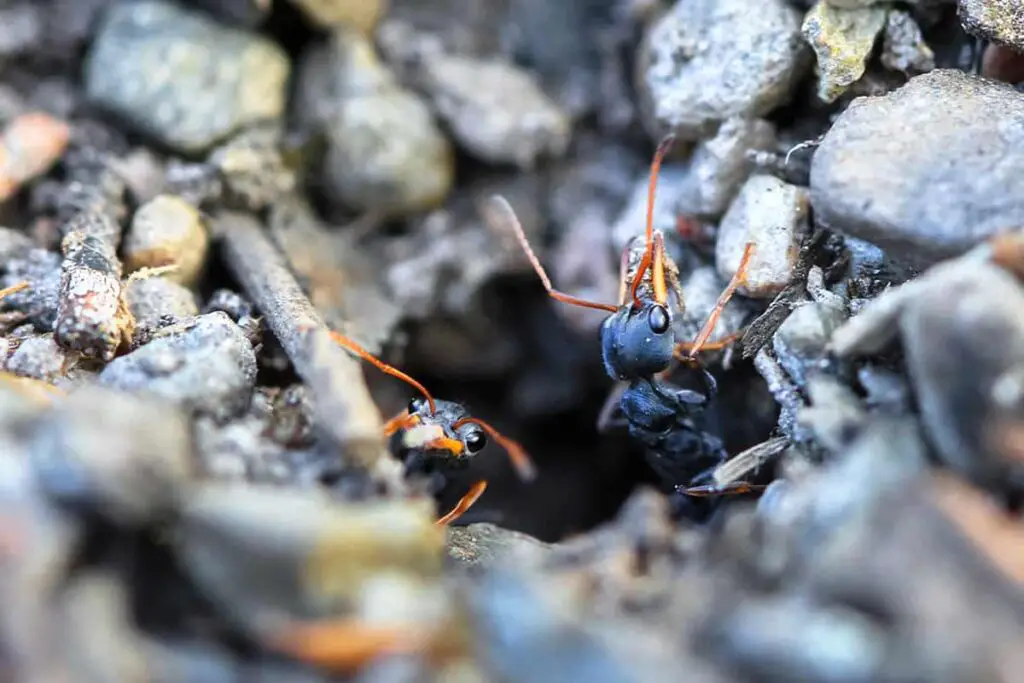When you notice a trail of ants marching through your kitchen, you may wonder about the effectiveness of household items you already have in combating these unwelcome guests. One such item that often comes up in discussions is flour. Some say that sprinkling flour can get rid of ants, suggesting that it works by expanding in their stomachs and causing them to expire. However, the belief that flour kills ants is more myth than fact, with little scientific evidence to support it.
If you’re aiming for an ant-free home, you’ll want reliable methods to deter these persistent insects. Exploring natural ant remedies is a smart approach, as it can minimize the use of toxic chemicals around your living space. For instance, certain substances like cinnamon or essential oils such as peppermint have been noted for their repellent properties when it comes to keeping ants at bay. These methods target the ants’ keen sense of smell, which is crucial to their survival and communication.
Understanding Ants
Before diving into whether flour is an effective ant deterrent, it’s important for you to understand a bit about ant behavior and their biological makeup. Knowing how ants function can shed light on how certain substances impact them.
Ant Behavior and Diet
Ants are social insects that live in structured communities called colonies. In your home, they’re often scavenging for foods to take back to their colony. Their diet typically includes proteins, sugars, and fats – all crucial for their survival. If they encounter substances like flour, which contain carbohydrates, they may initially be drawn to it.
Ant’s Anatomy and Survival
Ants are equipped with a tough exoskeleton that provides protection but can be susceptible to certain substances. They breathe through spiracles located on the sides of their bodies, and their ability to survive can be compromised if these spiracles get clogged or if their exoskeleton gets damaged.
Flour and Ants
When discussing the relationship between flour and ants, it’s essential to consider the attraction pests have to certain pantry items and how certain substances can affect ant behavior.
Flour Composition
Flour, a staple in many kitchens, is primarily composed of carbohydrates, which provide a rich energy source for a variety of pests such as ants. Carbohydrates in flour, including sugars and starch, can make it an attractive food for ants looking for nutrition.
Interaction of Flour with Ants
Ants may be drawn to flour due to its carbohydrate content. However, contrary to some beliefs, flour isn’t capable of killing ants directly. There are suggestions that a line of flour might deter ants from crossing into certain areas of your home, but it doesn’t have a lethal effect on them. To address an ant infestation, other methods such as ant baits containing Borax and sugar might be more effective.
Alternative Ant Control Methods
Exploring various methods to tackle ant infestations can lead you to a range of options from natural, DIY repellents to effective commercial products.
Natural Repellents
Essential oils: You can repel ants using peppermint, tea tree, and cinnamon oil. Simply place a few drops in areas where ants frequent to deter them.
Borax and sugar solution: A mixture of borax with sugar can act as a bait that ants carry back to their colony. The borax is lethal to ants when ingested. For a guide on how to create this solution, see 20 Safe Ways to Kill Ants in Your Home Without Toxic Chemicals.
Commercial Ant Killers
Ant baits: These are conveniently available and can be placed where ants are active. The ants are attracted to the bait and bring the poison back to their nest.
Insecticide sprays: For immediate results, insecticide sprays can kill ants on contact. These sprays generally have a residual effect to deter new ants from entering the area.
Frequently Asked Questions
In this section, you’ll find concise answers to common inquiries on the use of flour as a method for managing ants. Whether you’re dealing with an unexpected infestation or aiming to prevent one, the information here will guide you in using flour effectively.
How quickly can I expect to see results after using flour against ants?
Results can vary, but generally, you may notice fewer ants within a few days of applying flour to affected areas.
Is flour an effective solution for ant infestations indoors?
Flour is not considered a highly effective method for controlling indoor ant infestations. More reliable ant control methods exist that target the colony directly.
What tips can you provide for preventing ants in my flour storage?
To prevent ants in your flour storage, keep the flour in airtight containers and consider adding a line of cinnamon near doors and cupboards to deter them.
What are some permanent solutions for controlling ant problems?
Permanent solutions may include identifying and sealing entry points, maintaining cleanliness, and using ant baits or hiring professional pest control services.
Can baking soda be used as an alternative to flour for ant control?
Yes, baking soda mixed with powdered sugar can act as a DIY ant poison. The ants are attracted to the sugar and ingest the baking soda, which can kill them.
What is an instant remedy for an ant invasion?
For an instant remedy, consider using soapy water or a vinegar and water solution to spray directly onto the ants, which can kill them on contact.
Driven by a passion for those tiny creatures that rule our world, we at Bug Domain strive to be your go-to resource for information on insects.



